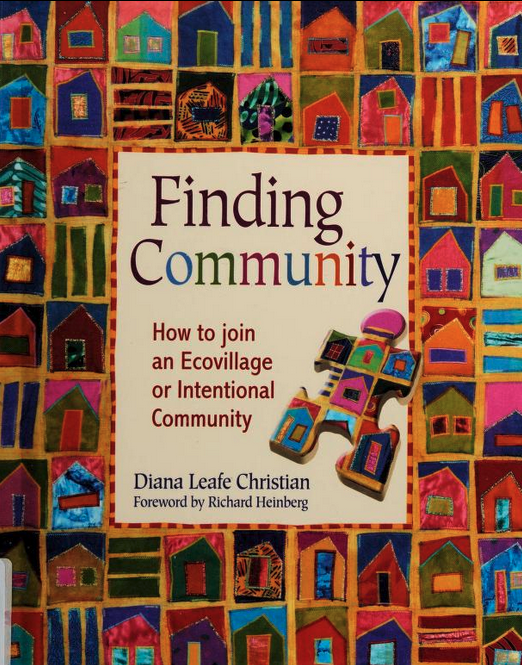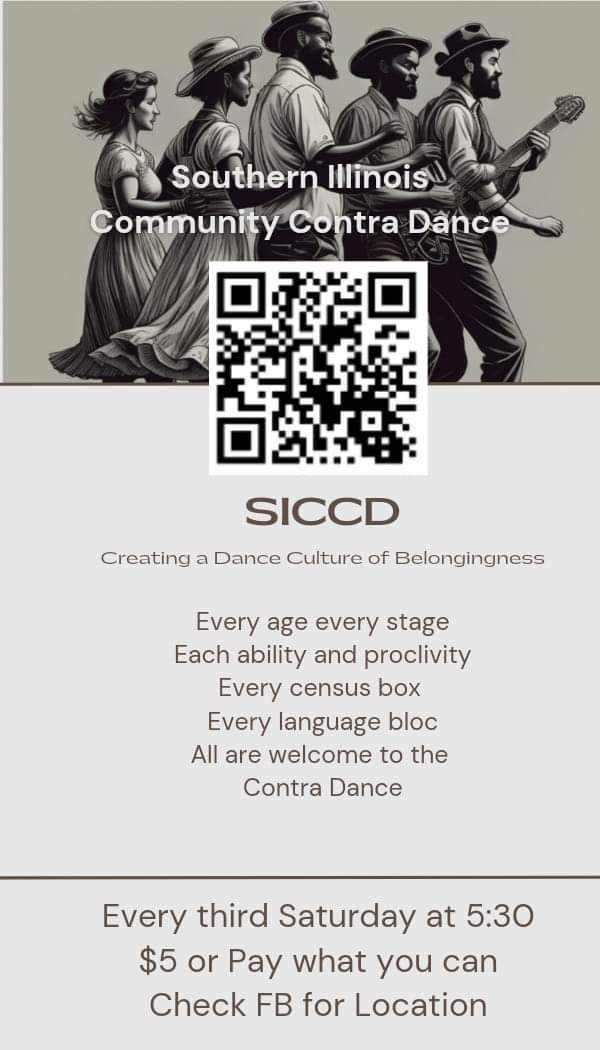1. I don’t want to live out in the boonies.
You don’t have to. A total of 1,520 communities listed themselves in the Online Directory of the Fellowship for Intentional Community (FIC) in 2006. Of the nearly 1,000 communities which noted whether they were urban or rural, four out of ten (412) said they were urban, suburban, or located in small towns. Six out of ten (592) said they were rural….
2. I don’t want to live with a bunch of hippies.
Few community members today consider themselves hippies. Some might identify themselves as non-mainstream or countercultural, others might identify themselves as relatively mainstream people who have an interest in community and sustainability. Many, such as members of cohousing communities, are essentially middle-class to upper-middle class people who live relatively normal lives — though more progressive, cooperative, and ecologically sustainable than most….
3. I don’t want to live a “poverty consciousness” lifestyle with limited resources.
You’ll find many different standards of living in ecovillages and intentional communities. Some embrace voluntary simplicity; others have full access to the comforts of contemporary life. Nearly all communities use the benefits of common ownership to allow people access to facilities and equipment they don’t need to own privately — for example, hot tubs, saunas, pools, exercise rooms, yoga rooms, power tools, washers and dryers, pickup trucks, tractors, and so on.
Newly formed communities often start off with limited resources and thus their members tend to live simply. As the community gets more established over time, it tends to create a stable economic base and its members gradually enjoy a physically more comfortable life — according to their own standards.
4. I don’t want to live with countercultural types who are trying to avoid responsibility.
Many people choose to live in community because it offers an alternative way of life from that of the wider society, yet most community members still raise families, maintain and repair their land and buildings, work for a living, pay income and property taxes, etc….
5. I don’t want to have to join a religion or take up some spiritual practice I don’t believe in.
You choose what kind of community you join, and you can choose from plenty of secular communities, or those which are spiritually eclectic and don’t have a common spiritual practice. In the FIC’s Online Directory listings (in 2006), of those which noted whether they had a shared spiritual path, 45 percent said they did, indicating that slightly more than half the intentional communities that listed themselves do not have a common spiritual practice.
6. I don’t want to live in a hierarchical system or follow a charismatic leader.
Very few communities are hierarchical, and again, which one you join is your choice. The most common form of community governance is democratic, with decisions made by consensus or some form of voting. Of the 1,228 communities which checked the “governance” section of the FIC’s Online Directory in 2006, nearly two-thirds (867) used a democratic form of governance, including consensus decision-making (747) or majority rule voting (120). About one-sixth (213) used a hierarchical model, including a community leader (65) or group of elders (148), and about one-twelfth (148) used some other form of governance which they didn’t specify.
7. I don’t want to have to think like everyone else. What if it turns out to be a cult?
…Members of any given community do hold many more values and beliefs in common than a comparable group of typical neighbors, since the community is organized around a common vision or purpose. However, disagreements about what they want or how to spend their funds are a common occurrence in most communities, just as in the wider society. Community members certainly don’t all live in a “hive mind,” but can have widely diverging opinions. Just ask any process and communications consultants called in to help resolve disputes!
The term “high-demand group” is sometimes used for communities with rigorous rules for conduct or highly structured schedules for one’s time. Some Christian communities, Buddhist retreat centers, and yoga ashrams are high-demand groups, in that people are expected to follow the agreements about diet, the use of money, or relations between the sexes, and have set schedules for prayer, meditation, or other forms of spiritual practice. People join these communities because they offer a more rigorous way of life than one usually lives, one which supports the particular religious or spiritual path they seek, or because the group offers specialized spiritual or religious training. High-demand groups simply have a strong focus: consider, for example, the military, and Catholic or Buddhist monasteries and convents. Only a small percentage of intentional communities could be described as high-demand….
The mainstream culture’s use of the word “cult” comes from essentially two sources. The first is the tiny percentage of high-demand groups whose members live together that physically abuse their members or who don’t let them leave, and whose violence ends up in headlines worldwide. A second source of the common use of the word “cult” are the few high-demand groups with local reputations for, say, authoritarian leaders who punish community members who question their authority….
You don’t get “assimilated” when you join a community. You have total control over which community you might join, and you can and should get abundant information about a community before you even consider joining it. In any case, if a community seems too high-demand or controlling for your taste when you read their literature or their website, you’ll know not to visit them. And if a community seems kind of strange when you’re already visiting, you don’t have to stay.
8. I’m afraid I wont have enough privacy or autonomy.
In a well-planned community whose members value sustainability people’s needs for privacy are built into the site plan and building design. To do otherwise would likely drive many people to leave the community — which of course wouldn’t make it sustainable! So most likely a community has planned, physically and socially, for its members’ needs for privacy….
But please realize that it’s you who will choose those ecovillages and communities you might want to visit, and those you might consider joining. You can certainly assess them for their practices re privacy, and consider only those that match your values.
Of course there’s also social privacy, and one has much less of this in community than in mainstream culture, since in communities everyone pretty much knows everyone else’s business, very much like in a small town. But unlike a town, people have come together quite intentionally andwith shared values and a common purpose. So, depending of course on the size of the community, the closeness or distance of the relationships, and the level of harmony, people’s interest in one another tends to be based more in concern and compassion than in mere curiosity or as fodder for gossip.
9. I don’t want to have to share incomes or give all my money to the community.
You don’t have to! Approximately 90 percent of intentional communities’ members have independent finances. As long as people pay what the community requires in annual dues and fees, they are free to work at any job they choose and spend or invest their income any way they like. The pervasive idea that in all communities people work at a community business for a stipend or that one’s outside salary goes into a common treasury with everyone else’s comes from the ’60s-era communes, fictional tales of community, and media accounts of some of the largest and most well-known income-sharing communities in North America such as Twin Oaks in Virginia, and (until they switched to independent incomes in 1984) The Farm in Tennessee. Roughly ten percent of the communities which listed themselves in the FIC’s online communities directory (in 2006) noted they were income-sharing.
Many people also have the idea that you must donate all your assets to a community — and if you leave, you won’t get any of it back! This is only the case in some Christian communities. But again, it’s you who are in charge of which communities you’ll visit and consider, and so if donating all your assets doesn’t appeal to you, you have ample opportunity to avoid it.
10. What if we all can’t get along? I don’t want to live with a bunch of bad-tempered grumps.
There are many times when people in community don’t get along. Conflicts can simmer, erupt, and ultimately get resolved to most people’s satisfaction, leaving the whole group a bit wiser and more mature for having gone through it. Or conflicts can fester for years, spreading resentment or hostility between individuals or groups of individuals, leaving the community weakened and vulnerable to larger, more intense conflicts later on…. Or conflicts can explode and rip the whole community apart, with various members leaving, or even the whole community disbanding, sometimes leaving broken hearts and crippling lawsuits in the wake.
This is where your discernment is needed as you visit communities. You’ll want to assess communities for signs of health or imbalance, and get to know your top choices for a community home in a long, slow process of checking them out thoroughly, which I call “long engagements.”
But let’s say the community you join is relatively healthy, yet you keep running into conflicts and difficulties with other people — and they with you. Welcome to the club! This is also what community is like, at least at first. There’s no place like community to meet yourself. That is, you’ll learn what does and doesn’t work well in terms of your own interpersonal communication skills. And you’ll most likely get better at getting along with even the “difficult” people, and grow enormously as a person. Diana Leafe Christian, in her book Finding Community: How to Join An Ecovillage or Intentional Community




